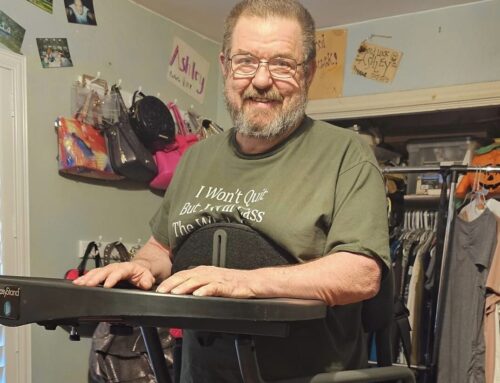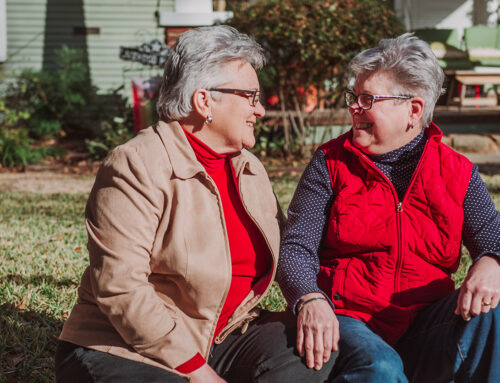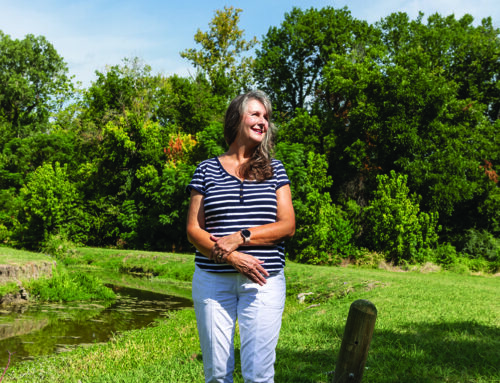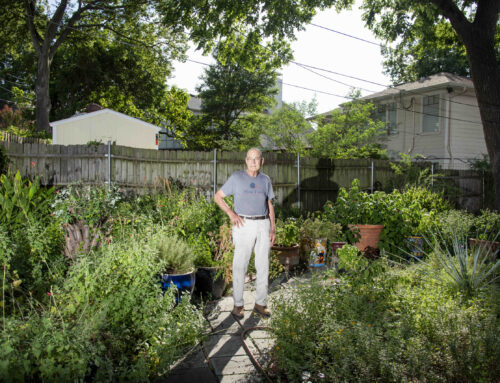Across the conference room table was a lanky, white-haired, rumpled-looking guy decked out in faded blue denim and tennis shoes. He introduced himself and began talking.
“I want to help out Woodrow,” he said. “I graduated in ’60, and that school meant so much to me. I went to Lakewood, Long and Woodrow, you know, all the way through public school.
“And when I read your article last month, it stayed with me. I couldn’t stop thinking about what you wrote because of what Woodrow meant to me,” he said.
“My experience at Woodrow inspired me to pursue a career in science, in engineering, and I want to give something back to the school that helped me find work that I really enjoy doing.”
Now, occasionally we receive a card or a letter in response to my column or our other editorial efforts. Sometimes, the writers thank us for our efforts. More often (see page 6 of this month’s issue, for example), the letters point out various shortcomings in our job skills or intelligence.
But it’s rare that something we write moves someone to drop by unannounced for a visit.
“Woodrow is a public school,” the man continued, “so a lot of people figure: We’ll let the school district do what the school district’s going to do, and that’s it. A lot of people sort of slough off helping out because they figure: It’s not my problem, it’s someone else’s.
“But my roots are here in this neighborhood, and I figure I’m staying here till the end, so…”
It turns out that after 70-some years in East Dallas, this man’s father died about the same time last month’s Advocate, with our coverage of problems facing Woodrow Wilson High School, arrived on his doorstep.
And while he didn’t say so, I suppose his father’s death caused him to think a little more seriously about his own lot of life.
“My father was a very conservative person, and I’m not so sure he’d approve of what I’m going to do. But my business is growing, and even though I’m not making lots of money, I live pretty modestly, and I can afford to do this – right now I can, anyway.”
The man wasn’t really rambling, but his words seemed to have a life of their own, and he made it clear when I asked some personal questions that he wasn’t here to talk about himself.
“This isn’t about me, anyway,” he said. “I want this to be about one individual doing something, and how it’s important for others in the community to do something to help, too.”
And finally, I learned why he came to the Advocate offices.
“I want to help those kids at Woodrow learn about science like I did, I still remember the labs, and I remember being able to have the hands-on experience.”
“Those labs meant so much to me. They showed me what a career in science might be like, as opposed to just reading about it in a book. So I want to give some money to make sure that the kids over there today can have the same experience I had.”
And with that, 54-year-old Harvey W. Wiggins Jr. told me he wanted to donate $3,000 to Woodrow. And then he said something that describes, much better than I can, what this column and what this neighborhood are all about.
“It’s just a little something that I can do. I’ll never be a Rockefeller or a Caruth, but I can do a little bit.”
“Even little people can do a little bit.”
Keep Those Minyard Receipts Coming
Speaking of doing a little bit, I’m very happy to report that many of you responded to last month’s story about Woodrow science teacher Tanya Tovar’s efforts to solicit enough Minyard receipts to purchase new microscopes for the school.
So far, more than $4,500 in receipts have been mailed to me here at the Advocate, and I know other donations have gone directly to the school.
Minyard’s “Computers for Kids” program allows schools to turn in receipts dated through March 31, 1997, for various educational items, including microscopes, computers and other equipment. So we still have one final month to continue collecting Minyard’s receipts and forward them to Woodrow. (It takes about $48,500 in receipts to purchase one microscope.)
I’ve received several calls from parents at other schools also collecting the receipts, so this fall – when the Minyard program hopefully begins again – we’ll publish a neighborhood-wide roundup of various schools and their needs, and together, we’ll work all year to make a difference.
The receipt collections we’ve received range from $36 to $996.24 in one envelope. Some of the donations have been anonymous, while others have included brief notes with their donations.
“Not many here,” one woman wrote in longhand while sending in receipts of $196.53, “but every bit helps.”





